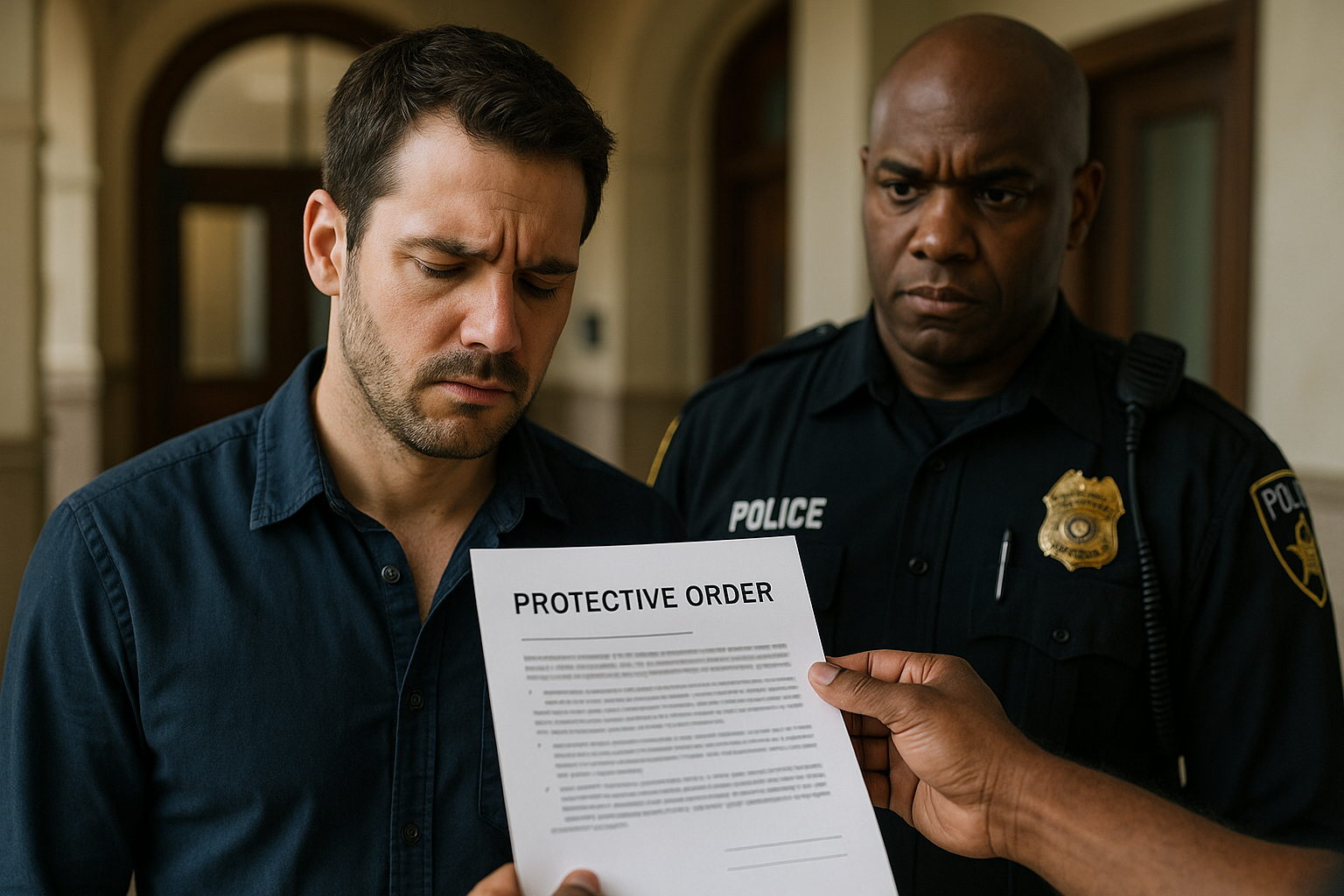How Can I Report And Stop Harassing Text Messages?
Harassment through text messages is a serious issue that many people face daily. In the state of Texas, there are laws in place to protect individuals from such behavior. If you are being harassed through text messages, it is important to know your rights and take action to stop it.
Understanding Harassment through Text Messages
Harassment can take many forms, and text messages are no exception. In the state of Texas, harassment through text messages is defined as any communication that:
- Is intended to annoy, alarm, or abuse another person
- Causes the recipient to feel threatened, frightened, intimidated, or harassed
- Is made with the intent to harass, annoy, alarm, or abuse
- Is made in a way that is likely to cause the recipient to feel threatened, frightened, intimidated, or harassed
Steps to Report and Stop Harassing Text Messages
- Keep Records: The first step in reporting and stopping harassing text messages is to keep records of all the messages you receive. This includes saving screenshots or printing out the messages, as well as noting the date and time they were received. This documentation will help build your case.
- Contact Your Phone Provider: If you are being harassed by someone through text messages, contact your phone provider and report the issue. They may have the option to block the sender or change your phone number if necessary.
- Report to Law Enforcement: If the harassment continues, it is important to report it to the police. In Texas, harassment through text messages is considered a criminal offense and can result in fines and/or jail time for the perpetrator.
- File for a Protective Order: If you are being harassed by an ex-partner or someone you have had a past relationship with, you may be able to file for a protective order. This is a legal document that can require the harasser to stay away from you and stop all forms of communication.
- Seek Legal Help: If you are unsure of the steps to take or need assistance in stopping the harassment, seek help from a lawyer who specializes in harassment cases. They can guide you through the process and help protect your rights.
Additional Ways to Protect Yourself
- Block the sender’s number: Most phones have the option to block certain numbers. This can prevent you from receiving any further messages from the harasser.
- Don’t engage with the sender: It may be tempting to respond or retaliate, but it is important not to engage with the sender. This can escalate the situation and make it harder for you to take legal action.
- Educate yourself on your rights: It is important to know your rights and understand the laws surrounding harassment in your state. This can help you make informed decisions and take appropriate action if necessary.
- Take care of yourself: Harassment can be emotionally taxing, so make sure to prioritize self-care during this time. Surround yourself with supportive friends and family and seek therapy if needed.
Harassment through text messages is a serious issue that can have long-lasting effects on the victim. It is important to act and protect yourself from further harm. Remember, you are not alone and there are resources available to help you in this situation.
Stay informed, stay safe, and know your rights in the state of Texas. Lastly, always remember that harassment is never okay, and you deserve to be treated with respect and dignity. Take care of yourself and don’t hesitate to seek help if needed. Stay strong!
Resources for Help
If you or someone you know is experiencing harassment through text messages, here are some resources available in the state of Texas:
- National Domestic Violence Hotline: 1-800-799-SAFE (7233)
- Texas Advocacy Project: 1-800-374-HOPE (4673)
- Texas Legal Services Center: 1-888-988-TXLS (8957)
Remember, it is important to act and seek help if you are being harassed. Do not suffer in silence and know that there are people who can support you through this difficult time. Stay safe and stay informed.
What Is Considered Harassment Under Texas Criminal Law?
Harassment is considered a serious crime in the state of Texas, as it affects both the physical and emotional well-being of an individual. Under Texas criminal law, harassment is defined as “a course of conduct directed at a specific person that causes substantial emotional distress in such person and serves no legitimate purpose.” This means that any repeated action or behavior towards another person that results in significant emotional harm can be classified as harassment.
It is important to note that the term “course of conduct” refers to two or more acts, including written or verbal communication, with a clear intent to harass, annoy, alarm, abuse, torment or embarrass the victim. These actions may include making obscene comments or threats, following a person around in a public place, or continuously contacting them through electronic means.
What sets harassment apart from other similar offenses is the requirement of a “specific person” as the target of such behavior. This means that the victim must be identified and targeted by the perpetrator for their actions to be considered harassment under Texas law. Additionally, the victim must experience substantial emotional distress because of the harassment.
In Texas, harassment is considered a Class B misdemeanor, punishable by up to 180 days in jail and a fine of up to $2,000. However, if the perpetrator has previously committed an offense against the same victim or violated a protective order, the offense can be elevated to a Class A misdemeanor with more severe penalties.
Victims of harassment may also seek civil remedies, such as obtaining a protective order or filing a lawsuit for damages. Individuals need to understand their rights and seek legal assistance if they believe they are being harassed.
It is also worth noting that certain behaviors, while not explicitly stated in the legal definition of harassment, may still be considered as such under Texas law. This includes stalking, cyberbullying, and workplace harassment. These behaviors can have serious consequences and should not be taken lightly.
In conclusion, harassment is a serious offense under Texas criminal law that involves repeated actions or behavior directed at a specific person with the intent to cause substantial emotional distress.
Individuals need to understand their rights and seek appropriate legal action if they believe they are being harassed. Remember, no one should have to endure harassment, and there are resources available to help victims seek justice.
So, everyone must raise their voice against any such crime or behavior and create a safe and respectful environment for all individuals in the community. Let us strive towards building a society free from harassment and promoting respect and empathy towards one another.
How Can I Collect Evidence Of Harassment?
Harassment is an unfortunate reality that many individuals face in their daily lives. It can come in different forms, such as verbal, physical, or electronic harassment. In the state of Texas, there are laws in place to protect individuals from various types of harassment. However, to take legal action against the harasser, one needs to gather evidence of the harassment.
Understanding the Laws in Texas
The first step in collecting evidence of harassment is understanding what constitutes harassment under the law in Texas. According to Texas law, harassment is defined as any unwanted physical or verbal conduct that intends to harm, intimidate, or threaten an individual. It includes but is not limited to stalking, cyberbullying, and sexual harassment.
To take legal action, the harasser’s conduct must meet certain criteria, including:
- The behavior is severe or pervasive enough to create a hostile environment
- The offender intentionally engages in the conduct
- The target of the harassment did not solicit or provoke the behavior
Types of Evidence
Various forms of evidence can be collected to support a claim of harassment. Some common types of evidence include:
- Written communication: This includes emails, text messages, or notes that contain derogatory or threatening language.
- Witness statements: If there were witnesses present during the incident, their statements can serve as evidence to support your claim.
- Physical evidence: Any physical items such as objects with offensive messages or photographs can be used as evidence.
- Audio or video recordings: Recordings of the harassment can serve as strong evidence, especially if they capture the offender’s behavior and/or intent.
How to Gather Evidence
To collect evidence of harassment, it is crucial to document everything carefully. Here are some tips on how to gather evidence effectively:
- Keep a record: Write down any incidents of harassment, including the date, time, location, and what happened. Try to be as detailed as possible.
- Take screenshots: If you are being harassed through electronic means, take screenshots of the messages or posts as evidence.
- Preserve physical evidence: Keep any items that contain offensive language or images in a safe place.
- Talk to witnesses: If there were witnesses to the harassment, ask them if they are willing to provide a written statement or testify on your behalf.
- Consult with an attorney: If you are unsure about what evidence is admissible in court, it is best to consult with an attorney who specializes in harassment cases.
Admissibility of Evidence
When presenting evidence in court, it is essential to know what evidence is admissible and what is not. In Texas, evidence must meet certain criteria to be considered admissible, including:
- Relevance: The evidence must be relevant to the case and directly related to the harassment.
- Authenticity: The evidence must be authentic and not tampered with or fabricated.
- Hearsay: Hearsay, or second-hand information, is generally not admissible in court.
- Privilege: Some types of evidence may be privileged and cannot be used, such as confidential medical or counseling records.
Collecting evidence of harassment can be a difficult and emotional process. It is crucial to understand the laws in Texas and gather evidence effectively to have a strong case against the harasser. If you or someone you know is a victim of harassment, remember that there are resources available to help and support you through the legal process. Always consult with an attorney for specific legal advice regarding your situation.
Remember, having strong evidence can make all the difference in obtaining justice and holding the harasser accountable for their actions. So, take the time to gather evidence carefully and do not hesitate to seek legal assistance if needed. Let’s work together to put an end to harassment and create a safer community for everyone. Stay informed, stay empowered, and know your rights.
How Can A Texas Criminal Defense Attorney Assist Me In My Text Harassment Case?
Text harassment, also known as cyberstalking or online harassment, is becoming an increasingly common crime in today’s digital age. With the widespread use of smartphones and social media platforms, it has become easier for individuals to harass and stalk others through electronic means.
In the state of Texas, text harassment is considered a form of cyberbullying and is taken very seriously by the law. If you have been accused or charged with text harassment, it is important to seek the help of a Texas criminal defense attorney.
What is Text Harassment?
Text harassment involves sending threatening, intimidating, or harassing messages through electronic means such as texts, emails, social media platforms, or other online forums. These messages can include explicit language, sexual content, or even threats of physical harm.
In Texas, it is a criminal offense to engage in text harassment with the intent to harass, annoy, alarm, abuse, torment, embarrass, or offend another person. This crime is punishable by fines and potential jail time.
The Role of a Criminal Defense Attorney
If you have been accused or charged with text harassment, it is important to seek the help of a criminal defense attorney. They play a crucial role in defending your rights and safeguarding your future. Here are some ways in which a Texas criminal defense attorney can assist you in a text harassment case:
- Legal Guidance: A criminal defense attorney has extensive knowledge and experience in handling cases related to text harassment. They can provide you with legal guidance and explain the charges against you, the potential consequences, and your legal options.
- Investigations: Your attorney will thoroughly investigate the evidence presented against you by the prosecution. This may include analyzing the content of the messages, obtaining witness statements, and gathering any other relevant information to build a strong defense for your case.
- Defense Strategies: Based on the evidence gathered, your attorney will develop defense strategies to challenge the prosecution’s accusations. This may include proving that there was no intent to harass or that the messages were taken out of context.
- Negotiations: In some cases, a criminal defense attorney may negotiate with the prosecution for a plea deal. This could result in reduced charges or lesser consequences for the accused.
- Court Representation: If your case goes to trial, a criminal defense attorney will represent you in court and present your defense. They will also cross-examine witnesses and challenge the evidence presented by the prosecution.
Additional Importance of Hiring a Criminal Defense Attorney
Aside from representing you in court, a Texas criminal defense attorney can also provide additional benefits in a text harassment case:
- Protection of Rights: Your attorney will ensure that your rights are protected throughout the legal process. They will also make sure that you are not taken advantage of or coerced into making any statements that could harm your case.
- Knowledge of Legal System: A criminal defense attorney has a deep understanding of the Texas legal system and can navigate the complexities of your case. They will also be up to date with any changes in laws related to text harassment, which could impact your case.
- Emotional Support: Being accused or charged with text harassment can be a stressful and emotional experience. A criminal defense attorney can provide you with support and guidance during this difficult time.
In conclusion, a Texas criminal defense attorney plays an important role in text harassment cases. They can provide legal guidance, investigate the evidence, develop defense strategies, negotiate with the prosecution, and represent you in court. Hiring a competent and experienced attorney is crucial for safeguarding your rights and protecting your future in such cases.
If you have been accused or charged with text harassment, do not hesitate to seek the help of a criminal defense attorney. Remember, everyone has the right to a fair trial and proper legal representation. Don’t face these serious charges alone, let a skilled attorney fight for your rights and defend your case.
‹ Back














